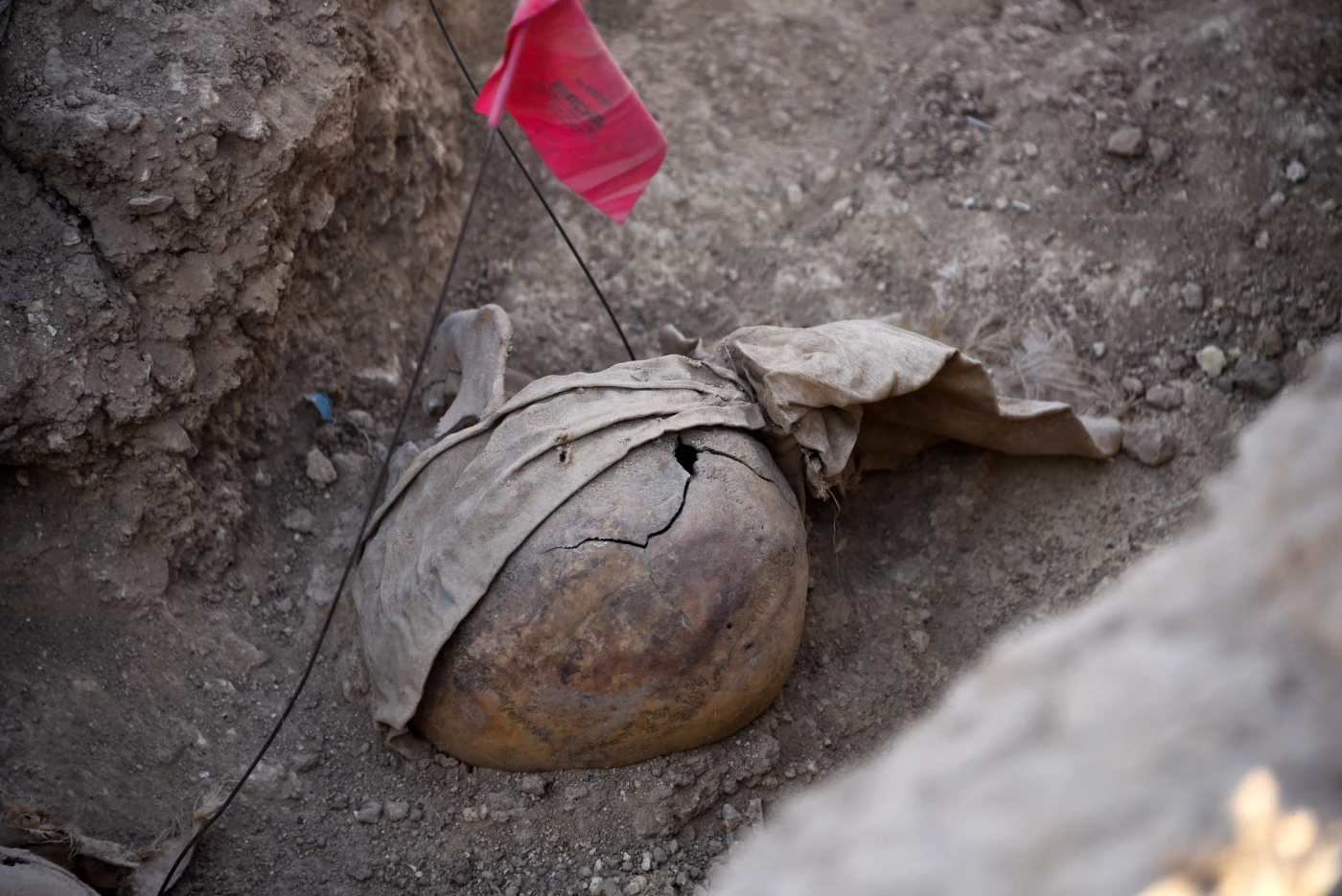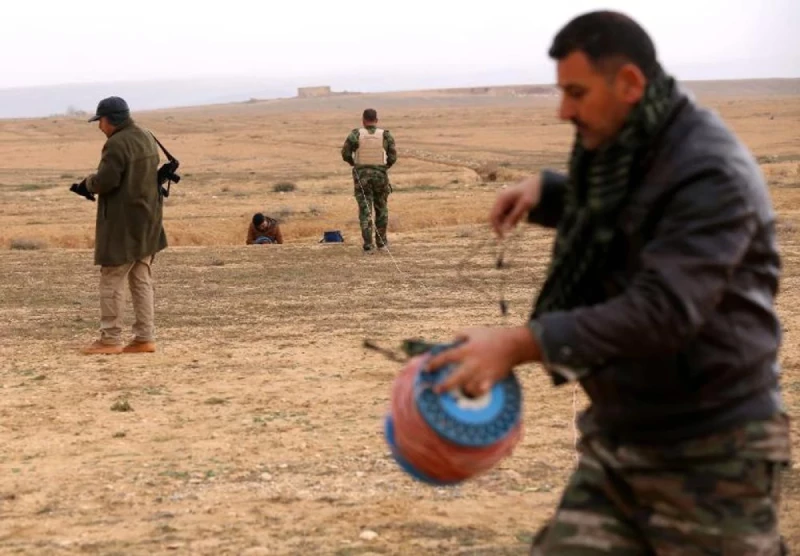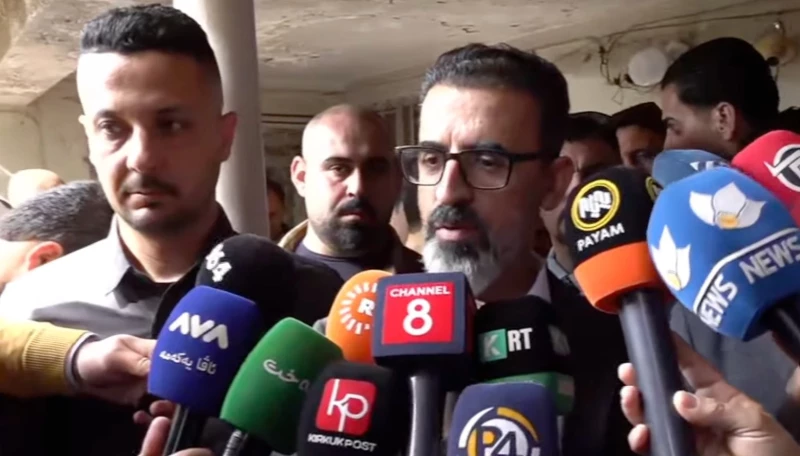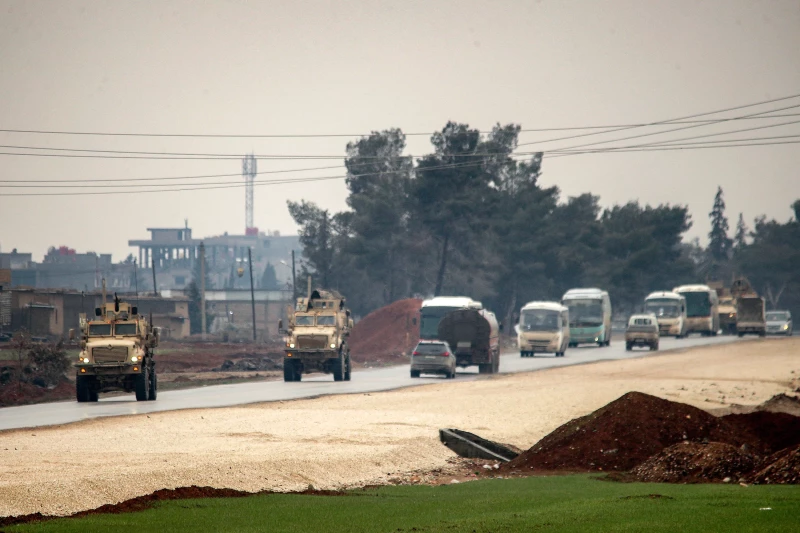ERBIL, Kurdistan Region of Iraq - The governor of Nineveh on Sunday announced the start of the first phase of exhuming the Khasfa mass grave, said to be the largest mass grave left behind by the Islamic State (ISIS) during their reign of terror in the province.
In a press conference on Sunday, Nineveh Governor Abdul Qader al-Dakhil described the mass grave as “a crime that shocks the mind and conscience, and it remains Nineveh’s deep wound.”
Around 20,000 of Nineveh’s residents were killed at the hands of the jihadist group, including more than 2,000 killed in one day, according to Dakhil.
The governor stated that the first phase of the exhumation will be completed through cooperation between several state bodies and institutions, adding that memorial is set to be erected to commemorate the victims of “this horrific massacre.”
After the demining of the surrounding area, a specialized digging and excavation team began the exhumation efforts, according to a statement from the Iraqi judiciary.
“The remains found will be transferred and handed over to the Forensic Medicine Department for necessary tests and blood matching procedures with those of the victims' families,” read a statement from the Iraqi Martyrs Foundation.
Mosul was the capital of ISIS’ so-called caliphate and its most important stronghold after seizing control of Nineveh in 2014. Following the territorial defeat of ISIS in 2017, tens of mass graves were discovered in the area that used to be under the group’s control.
In 2018, the United Nations Assistance Mission in Iraq (UNAMI) revealed that it had documented 202 mass grave sites for ISIS victims in the provinces of Nineveh, Kirkuk, Salahaddin, and Anbar, estimating the number of victims in the mass graves to be between 6,000 and 12,000 people.
The Khasfa mass grave served as the organization’s primary execution site. Thousands of civilians and military personnel were killed, with their bodies disposed of in the pit.
The Iraqi judiciary’s National Center for International Judicial Cooperation said that the exhumation of Khasfa “comes within the framework of national efforts aimed at documenting crimes of genocide and crimes against humanity,” and “represents a fundamental stage in the process of justice and preserving Iraqi memory.”
Reporting by Hevi Karam



 Facebook
Facebook
 LinkedIn
LinkedIn
 Telegram
Telegram
 X
X


